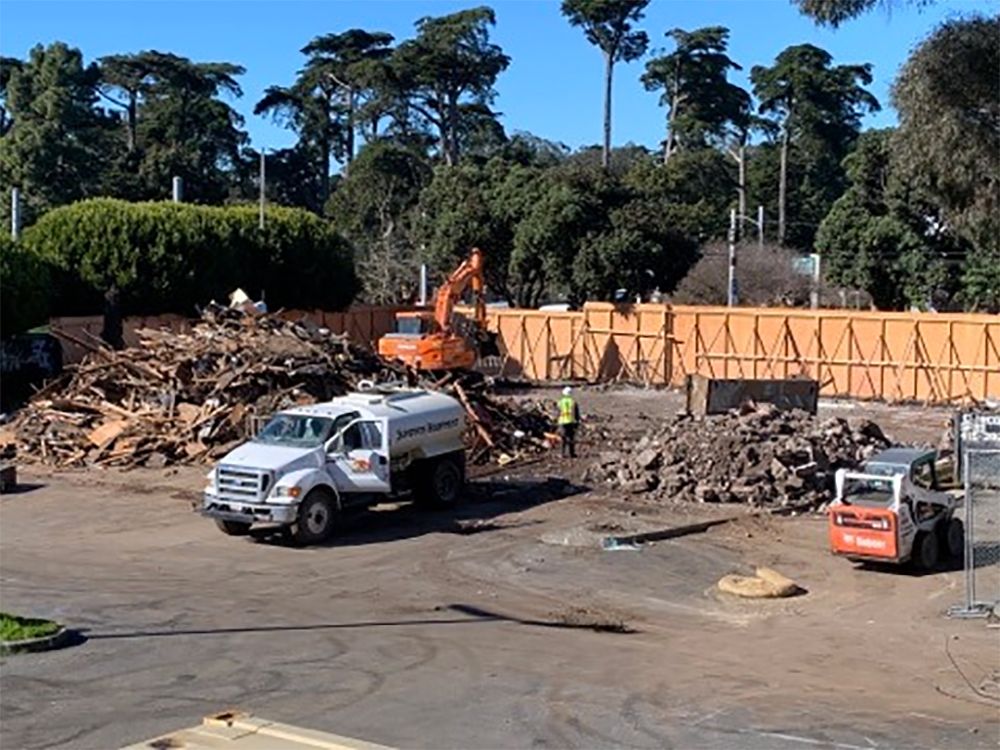The infamous McDonald's at Haight and Stanyan is now completely gone, as the building was razed and the site is now almost fully cleared to make way for an affordable housing development.
After more than a decade of being a hub of drug activity and general sketchiness, the McDonald's in the Upper Haight shut its doors almost two years ago. By that time it had been the site of a mid-day shooting in August 2017, which was quickly followed by an offer from the city to buy the property from its owner for a cool $10 million. The Mayor's Office of Housing and Community Development (MOHCD) said at the time that the property at 730 Stanyan Street could accommodate around 90 units of affordable housing, and that was the plan for it.
Fast forward two and a half years and things finally seem to be moving, with demolition that's been ongoing — and this is what it looks like today, courtesy of SFist reader Thomas Maffei.

As Curbed reported in September, the MOHCD put out a Request for Qualifications (RFQ) for affordable housing developers interested in the site, and then it put out a separate Request for Proposals for interim uses of the site. Just in the last week, as the MOHCD says on its site, the interim use process has been "paused" partly because of "the extent of the impact on the neighborhood from the Public Works improvement process currently underway (which has created an urgent need for parking)." So, it sounds like some neighbors have been complaining about the demolition and the removal of street parking spaces that came as a result of construction waste containers, etc.
The MOHCD also says the interim use may not be necessary anymore because of "the possibility of new funding opportunities that could accelerate the construction of affordable housing at the site," meaning that the empty lot won't stay empty for the originally estimated three to five years.
It doesn't seem as though a developer has been selected, even though the RFQ had said that would happen by January 10.
The plan is now for a "minimum of 120 units" of different sizes, with an average affordability factor based on 60% Area Median Income, or $86,200 or one person. At least 40 units will be earmarked for homeless families and subsidized by the city’s Local Operating Subsidy Program.

